Opponents to an Indigenous voice to parliament concede their campaign is ‘low-key’
Yes23 is out-campaigning the No side on the ground but that doesn’t appear to be concerning chief opponents of the voice.
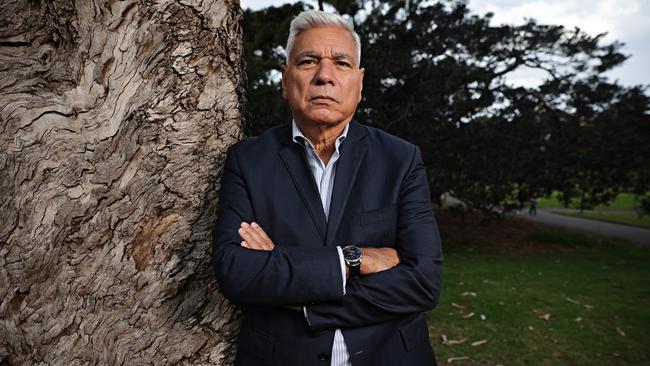
Opponents of an Indigenous voice to parliament are running a “low-key” ground campaign that’s “not as flash” as the Yes side, according to leading No spokesman Warren Mundine, with the focus on reaching voters through social media platforms such as TikTok rather than door-knocking and holding daily public events.
As the official campaign enters its second week, Mr Mundine declared the No camp’s greatest campaigning technique was to let supporters knock on doors and talk with Australians because “they can’t answer the questions”.
The claim was made as Anthony Albanese ratcheted up his parliamentary attack against Peter Dutton on the referendum, saying the Opposition Leader wanted to defeat it for political reasons and then have a second poll so he could “talk about this for year after year after year after year”.
“We want outcomes,” the Prime Minister said. “No one is asking for a second referendum, which is his position. He wants to see Indigenous people, he just doesn’t want them to be heard.”
Mr Dutton questioned how Mr Albanese could go ahead with the October 14 referendum “knowing that he’s going to divide our country clean down the middle”.
Four prominent Yes campaigners – Dean Parkin, Thomas Mayo, Noel Pearson and Rachel Perkins – have been out-campaigning the No camp, traversing the country and holding daily events while 30,000 volunteers knock on doors.
Amid warnings from Nationals leader David Littleproud that the No campaign couldn’t afford to be complacent, Mr Mundine acknowledged there were some days he wasn’t able to appear publicly on the campaign trail because he still had businesses to run.
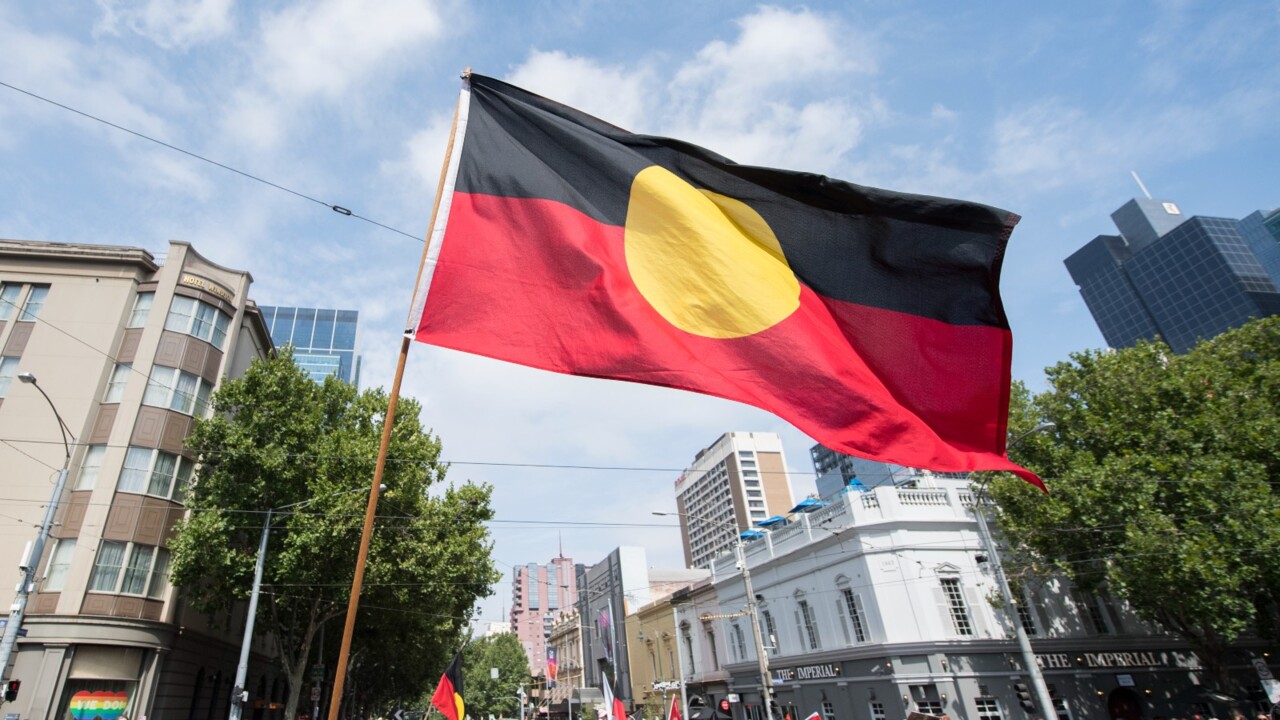
“We’re just ordinary Australians who still have to work. We’re not as flash as the Yes campaign,” he said. “It’s working in our favour all this stuff. Every time they pull out a celebrity, people go ‘eh eh’. It’s not about the vibe, it’s not about feeling good or feeling guilty, this is about the governance of this country and practical events. It (the No campaign) is just low key, talking to groups of people and asking them to talk to their families and ‘here’s what it’s all about’.”
Asked what the No camp’s most effective campaigning technique was, he said: “Them (Yes23) knocking on doors and talking face-to-face with the public.”
The Australian understands the No campaign has relied on detailed modelling to produce a road map revealing exactly which voters – including who they are, what they do and where they live – would be most receptive to their messaging.
That information is then used to inform where to target all voter contact tactics including digital advertising, phone calls, text messages and unaddressed mail.
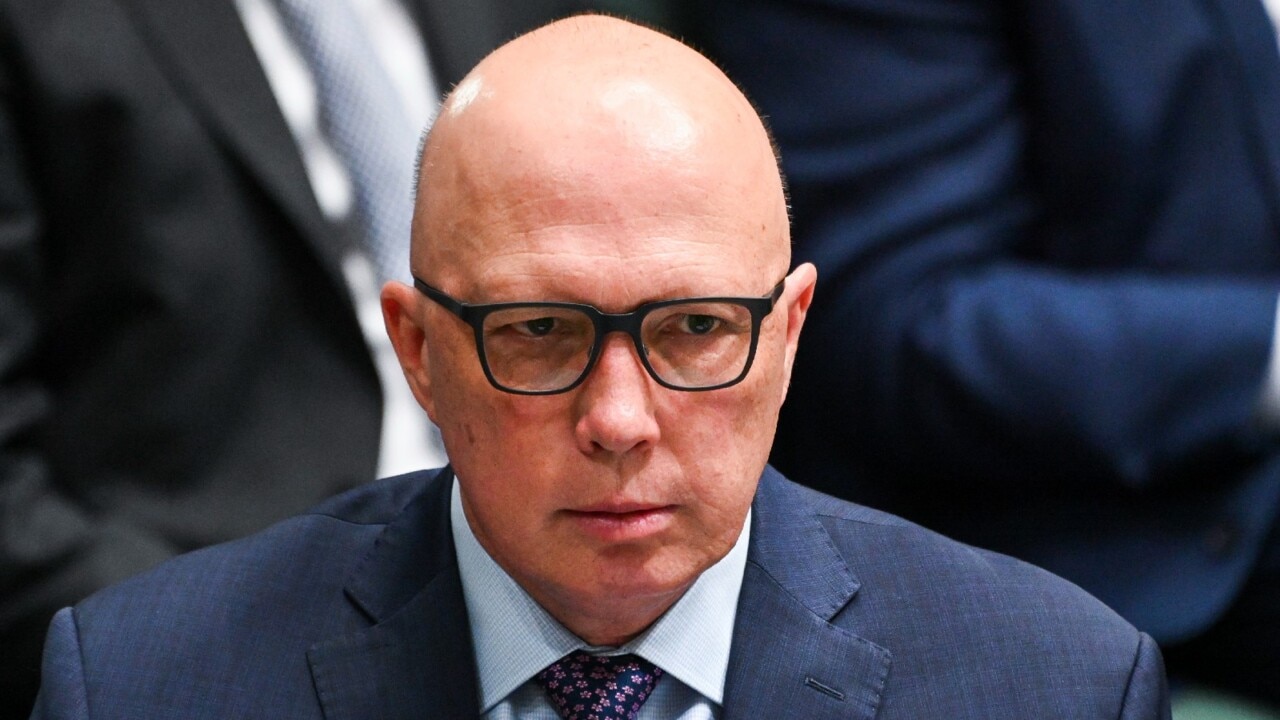
The No campaign body, Fair Australia, is prioritising cheaper social media ads rather than mainstream media and engaging with voters on platforms like TikTok – where it has 33.6k followers compared to Yes23’s 3.1k. followers.
Former Western Australia treasurer and voice supporter Ben Wyatt said the status quo was no longer acceptable and told undecided voters who weren’t sure if the Constitution needed amending: “Sometimes when you have had such strong evidence of policy failure, you need to shake the system up – a Yes vote shakes the system up in Aboriginal policy and ensures that we get a much better outcome in the implementation and development of policy.”
Aboriginal activist Megan Krakouer, campaigning alongside Mr Wyatt and Mr Parkin in Perth, said she didn’t believe the voice was enough or that “it’ll make the great change we need it to” but people in her community were suffering from suicidality and mental health and she wouldn’t “stand in the way of some kind of progress”.
“I’m not sure it’ll work but I do know we have to give it a try because there is just so much despair in our community,” she said.


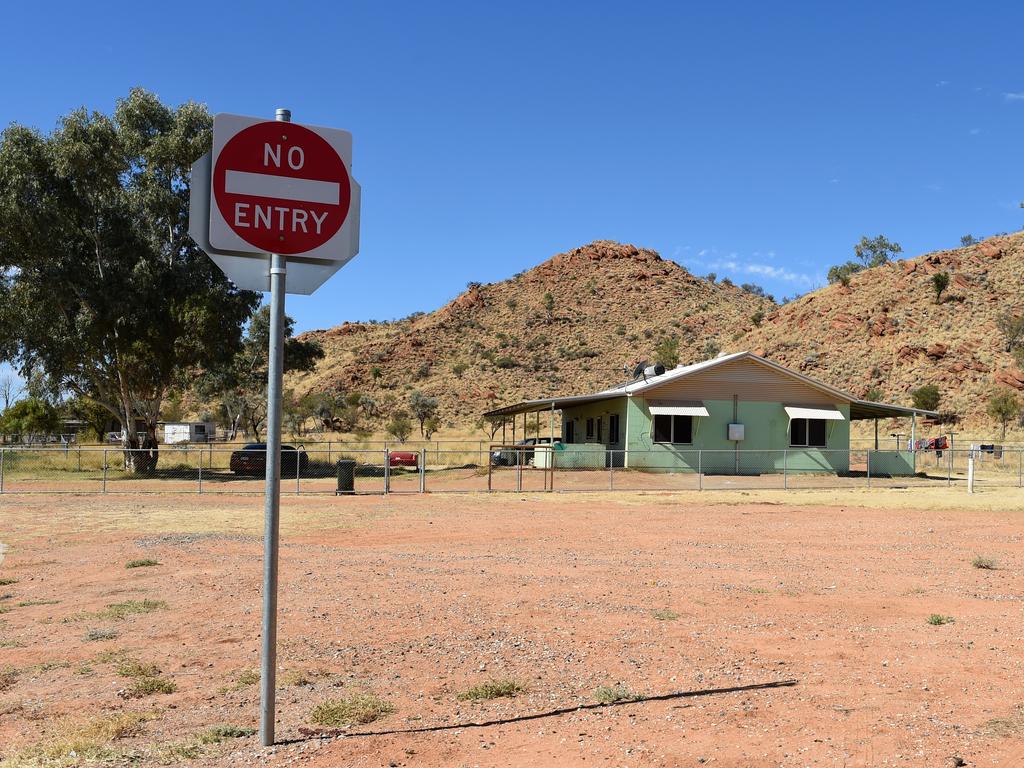

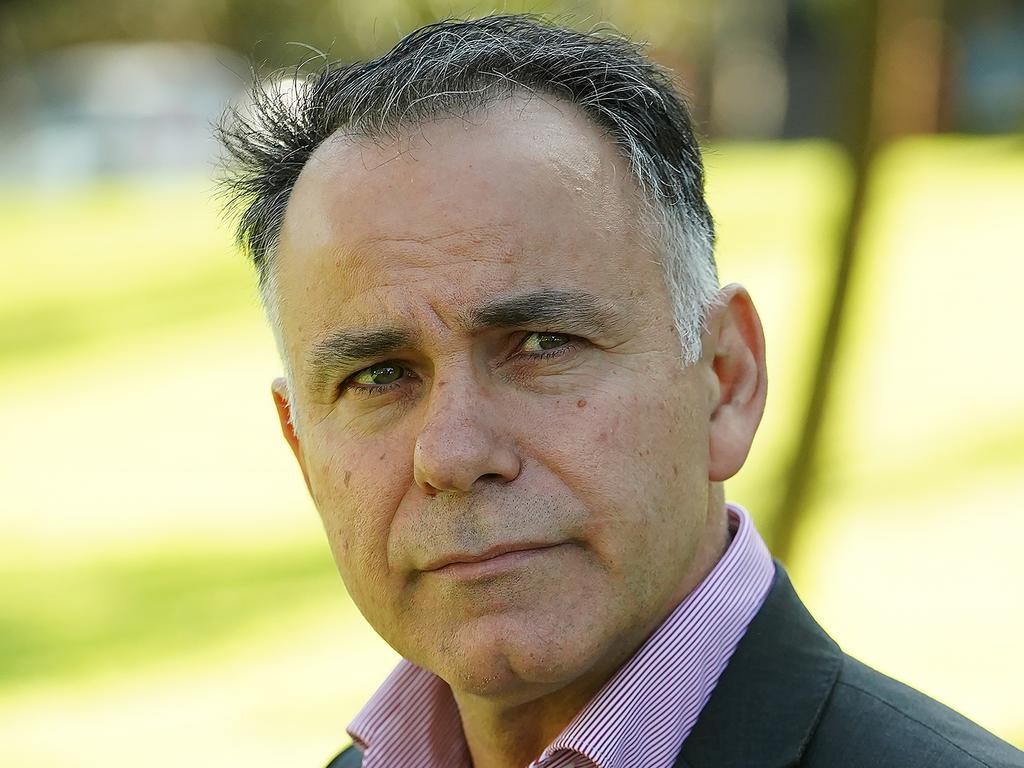
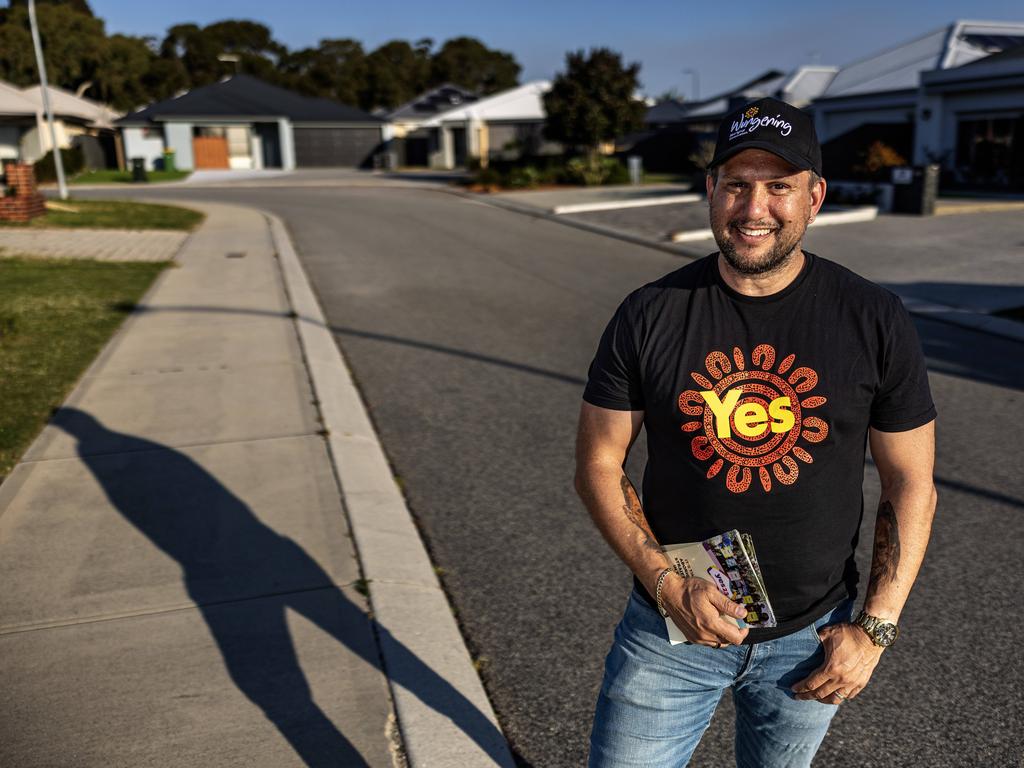
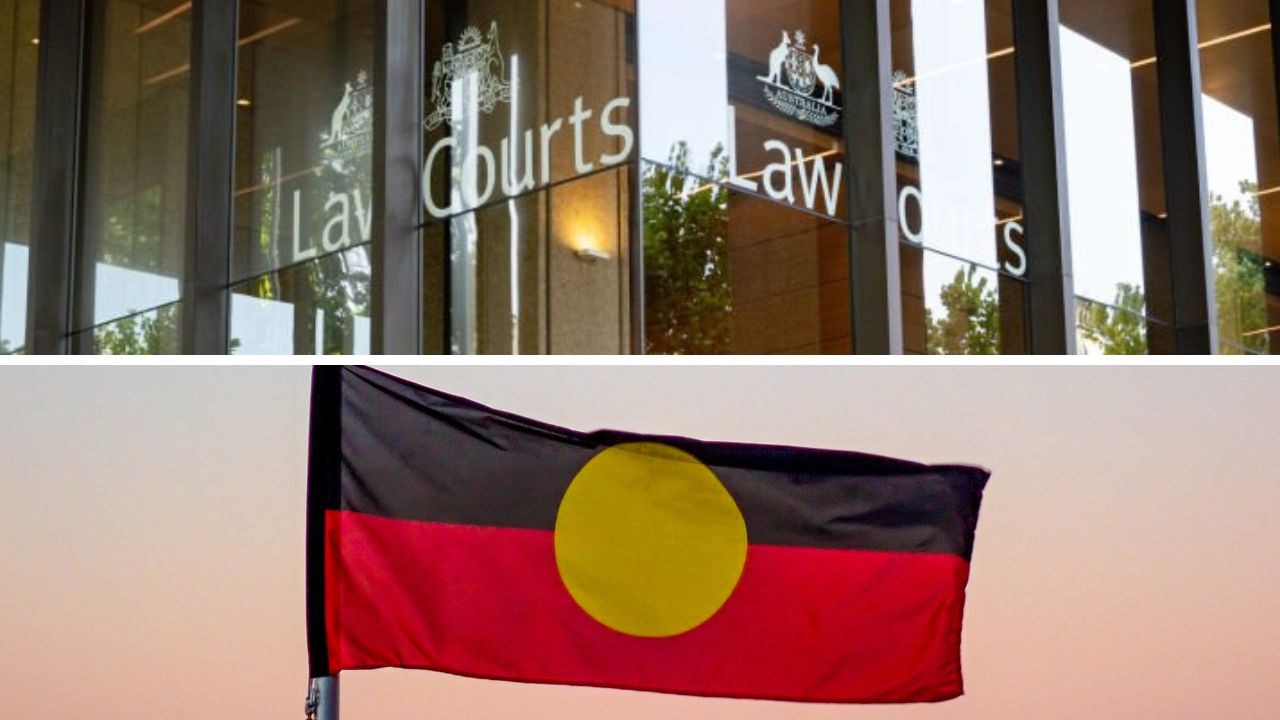
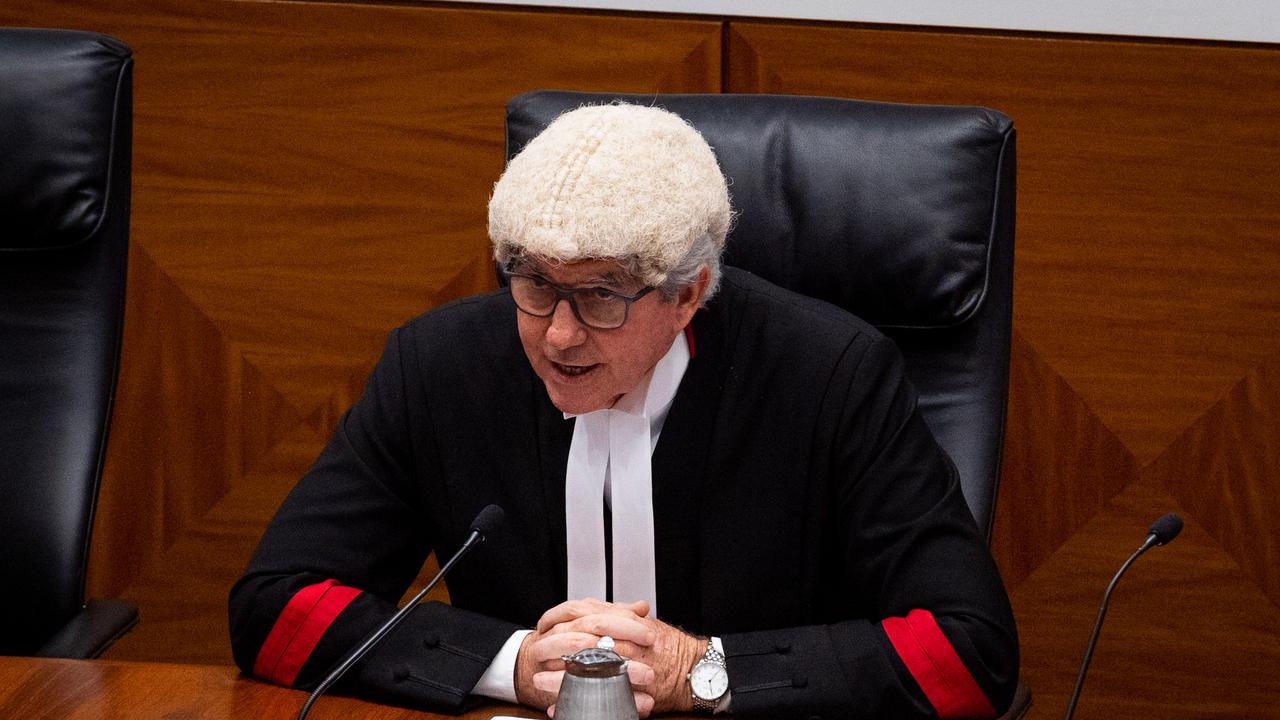
To join the conversation, please log in. Don't have an account? Register
Join the conversation, you are commenting as Logout